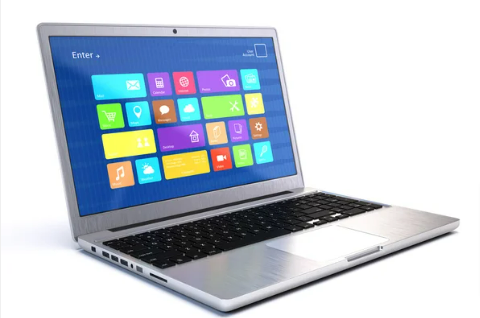At least 32 electronics giants had submitted applications to India’s incentive scheme to manufacture laptops, tablets, and servers in the nation. This is just weeks after the government placed curbs on laptop imports
Table of Contents
32 Electronics Giants Nod for Application Submission for Laptop Production
India announced earlier this month that imports of laptops, tablets, and personal computers will be subject to a license requirement. This announcement was widely viewed as a bid to increase domestic production.
Hewlett Packard Enterprise, Dell Technologies, Asus, Acer, and Lenovo are among the 32 electronics giants that have applied to produce laptops and other items in India, according to Vaishnaw, who was speaking in a video stream from the ANI news agency, a minority-owned subsidiary of Reuters.
According to the minister, the PLI program for IT hardware is anticipated to result in an increase in investment of Rs. 24.3 billion and the creation of 75,000 new direct jobs.
New Rules for the Import of Electronic Products
The country’s trade agency announced on August 5 that India will offer a transition time of roughly three months prior to the implementation of a new licensing scheme for the importation of laptops, tablets, and personal computers.
Main provisions of India’s new licensing rules regarding laptops
The new legislation would now require businesses to acquire an import license. This might prevent new PC and laptop models from being released together in Indian markets.
One laptop, tablet, all-in-one computer, or ultra-small form factor computer, including those bought through online shops by postal service or courier, are exempt from import licensing requirements.
Additionally, if the consignment contains up to 20 of these items for R&D testing, benchmarking, evaluation, repair, re-export, or product development, the exemption from licensing for imports will apply.

Reasons, and India’s Manufacturing Push
According to the government, the new licensing regime is meant to strengthen India’s manufacturing push and restrict imports from China since the country is concerned about the security of such products.
Moreover, since imports of electronics, including laptops, tablets, and personal computers, totaled $19.7 billion between April and June 2024 and increased at a pace of about 6% annually, the government believes that Indian manufacturers have an immediate opportunity to fill the gap.
Also, the move can be seen as the first step to reducing reliance on imports, especially those from China. Approximately 1.5% of all imports each year are laptops, tablets, and personal computers, with China accounting for the majority of these devices’ production. India has historically been successful at boosting domestic production by levying high tariffs on items like mobile phones which led to $38 billion in smartphone production last year.

The new licensing requirement is consistent with the production-linked incentives (PLIs) offered by the government, which have been increased to more than a dozen industries, including electronics.
Also, the government has extended the application date for its $2 billion manufacturing incentive program, which aims to encourage large investments in the manufacturing of IT equipment such as laptops, tablets, personal computers, and servers. By 2026, India wants to create $300 billion worth of electronics each year with the support of this ambitious scheme.
Impact of India’s new licensing requirements on global hardware companies:
Though the Indian laptop market is dominated by global digital hardware giants like HP, Dell, Acer, Samsung, LG, Apple, and Lenovo, with a major amount of their products coming from China, the constraint might force these businesses to explore possibilities for local manufacturing in order to keep thriving in the Indian market.
Conclusion
With over 30 global electronics companies embracing the PLI scheme, India’s bid to reduce reliance on imports gains momentum. Moreover, the measure will not only address security concerns but also aim to bridge the demand-supply gap while fostering local job creation and investment.
As global players like HP, Dell, Apple etcetera adapt to this shift, the landscape of India’s tech industry is poised for transformative change.













